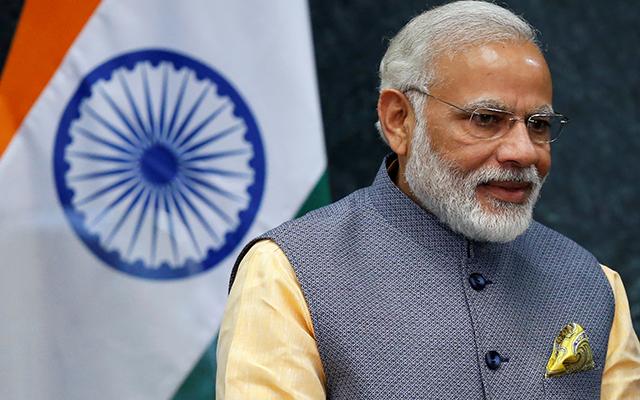The National Democratic Alliance government on Monday announced a slew of measures allowing 100% foreign direct investment (FDI) through the automatic route in several strategically important sectors such as aviation.
Domestic airlines, brownfield airports, direct-to-home networks, mobile television, greenfield pharmaceuticals are some of the sectors in which the 100% FDI under automatic route has been allowed. The decision was taken by a high-level meeting chaired by Prime Minister Narendra Modi.
The government has also decided to permit 100% FDI under automatic approval route for trading, including through e-commerce, in respect of food products manufactured or produced in India.
The government, however, restricted local sourcing norms for single brand retail trading. Earlier, there was no time limit for single brand traders to source locally, which now has been reduced to three years and can be extended by another five years. This is available for products which use state-of-art or cutting edge technology.
Interestingly, the decision came on the first day of stock market trading after Reserve Bank of India governor Raghuram Rajan on 18 June announced that he will demit office after his term expires on 4 September 2016.
However, not many believe that the two events are correlated. “None of these decisions could have been taken overnight. To my mind, the Prime Minister is just back from a five-nation tour where he made commitments to liberalise investment norms. He has to walk the talk,†said P.R. Ramesh, chairman, Deloitte India.
The markets on Monday opened on a weak note but eventually recovered. The benchmark BSE Sensex opened 128.80 points below its Friday close of 26,625.91, eventually closing the day at 26,866.92, a gain of around 241.01 points or 0.91%.
In the civil aviation sector, foreign companies will now be allowed to buy stake in Indian carriers up to 100%, with FDI up to 49% permitted under the automatic route and FDI beyond 49% after government approval.
For non-resident Indians, 100% FDI will continue to be allowed under the automatic route. However, the ceiling for foreign carriers investing in Indian entities stays at 49%.
The government’s move will benefit new entrants in the Indian airline sector, such as AirAsia and Vistara, which are backed by foreign investors, besides providing clarity to other airlines as required shareholding patterns will now be clearer.
However, the sector may not see immediate flow of funds. “While the increase in FDI for aviation is welcome as it will allow flexibility, we are unlikely to see investors suddenly rushing to invest in airlines just because the cap of 49% has been removed. Investment by foreign airlines is still capped at 49%, so it remains to be seen whether other investors such as private equities and the likes will have the risk appetite to make such investments,†said Peeyush Naidu, partner, Deloitte.
Opening up the defence sector, the government has allowed investment beyond 49% through government approval in cases which will lead to accessing modern technology in the country or for other reasons to be recorded. At present, 49% FDI participation in the equity of a defence manufacturing company under automatic route is allowed. FDI above 49% is permitted through government approval on a case-to-case basis, “wherever it is likely to result in access to modern and ‘state-of-art’ technology in the countryâ€, said a government release.
Industry lobby group Assocham said the government’s decision to increase the FDI cap will help India realise the dream of self-reliance in the defence sector, which has immense possibilities for attracting investments, setting up manufacturing facilities, obtaining technologies and capabilities and generating high-skilled employment.
“Increasing the FDI limit will also facilitate better compliance of offset obligations. Defence production needs long-term and large investment, cutting-edge technology with low economies of scale. It will also help in bringing investment and advanced technology into defence sector, thereby leading to inflow of capital and setting up entities of original equipment manufacturers and their suppliers through transfer of technology,†said D.S. Rawat, secretary general of Assocham.
In pharmaceuticals, it has been decided to permit up to 74% FDI under automatic route in brownfield pharmaceuticals and government approval route beyond 74% will continue. At present, 100% FDI is allowed under automatic route in greenfield pharmaceutical projects.
“FDI will favourably impact the Indian pharmaceutical industry by providing access to more capital and funds for investing in research and development, which in turn will lead to creation of more intellectual property rights,†said Rawat.
A greenfield project refers to a project that does not follow an existing one and is made from scratch. Those that are modified are called brownfield projects.
Commenting on 100% FDI being allowed under the automatic route in the direct-to-home (DTH) space, Harit Nagpal, chief executive officer of Tata Sky, said any FDI addition will not do any good and add no value to the DTH industry until the cross-holdings in media is restricted to 20%, as told by the Telecom Regulatory Authority of India.
“The government must have rather looked into the media cross-holding issues rather than increasing the FDI cap in the DTH sector. It doesn’t help the industry in any way,†said Nagpal.
The other decisions include 49% FDI under automatic route for private security agencies and FDI beyond 49% and up to 74% through government approval route from the current levels of 49% FDI allowed under government approval route in this sector.
According to Ramesh, these measures will ease doing business in India. “Apart from increase in fund flows, there will be no need to wait for approvals,†he added.
For establishment of branch office, liaison office or project office or any other place of business in India, if the principal business of the applicant is defence, telecom, private security or information and broadcasting, it has been decided that RBI approval or separate security clearance will not be required in cases wherein Foreign Investment Promotion Board approval by the concerned ministry or regulator has already been granted.
Like this report? Sign up for our daily newsletter to get our top reports.






